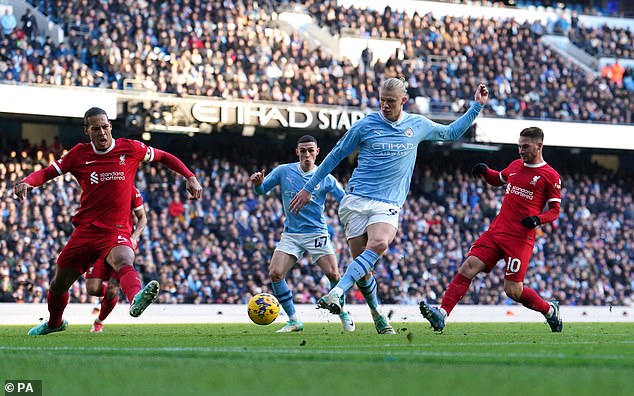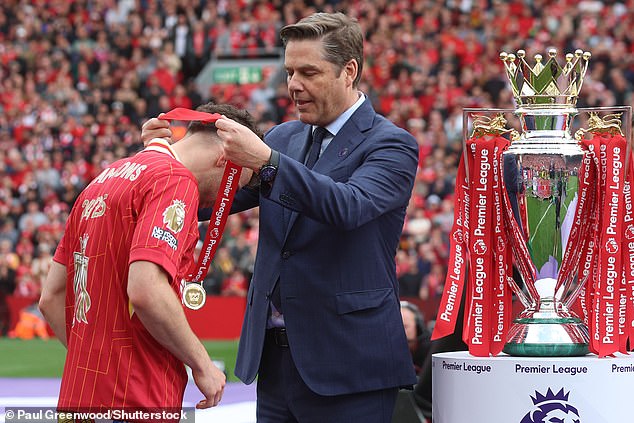Premier League clubs have voted against new highly controversial salary cap rules – but have green lit the introduction of new squad cost rules to replace the existing Profit and Sustainability Rules (PSR) from next season.
In a landmark meeting on Friday, top clubs have voted against ‘anchoring’ from next season, which would have seen the amount any side could spend limited to five times the prize money and broadcast revenue paid to the club which finishes bottom.
This followed Daily Mail Sport’s reporting that an outraged Professional Footballers’ Association have threatened legal action – along with three of football’s biggest agencies telling the Premier League they will see them in court should they introduce the framework.
Anchoring received only seven votes in favour, with 12 against and one abstention. A threshold of 14 of the 20 clubs voting in favour of a proposal is required to change Premier League rules.
However, clubs have agreed to bring in a new set of financial rules which will come into effect from the start of the 2026-27 season – namely Squad Cost Ratio (SCR) and Systematic Resilience (SSR) proposals.
SCR will replace the league’s current profit and sustainability framework, which limit club losses to a maximum of £105million ($137m) over a three-year period. As a result, this season will be the last under those regulations.

Premier League clubs have voted against new highly controversial salary cap rules – but have green lit the introduction of new squad cost rules to replace the existing PSR regulations

SCR rules detail that clubs’ on-pitch spending will be regulated to 85 per cent of their football revenue and net profit/loss on player sales, brought in to ‘promote opportunity for all clubs’
Instead, SCR rules detail that clubs’ on-pitch spending will be regulated to 85 per cent of their football revenue and net profit/loss on player sales. They also state that clubs will have a multi-year allowance of 30 per cent that they can use to spend in excess of the 85 per cent.
‘The new SCR rules are intended to promote opportunity for all clubs to aspire to greater success and brings the League’s financial system close to UEFA’s existing SCR rules which operate at a threshold of 70 per cent,’ a Premier League statement said.
‘The other key features of the league’s new system include transparent in-season monitoring and sanctions, protection against sporting underperformance, an ability to spend ahead of revenues, strengthened ability to invest off the pitch, and a reduction in complexity by focusing on football costs.’
While UEFA’s SCR rules runs annually, the Premier League’s version would run in line with the football season. Chelsea and Aston Villa received combined fines of around £14.7m (€17m) from UEFA last summer for breaching the SCR rules in 2024.
As for the SSR rules, the statement says: ‘(These) assess a club’s short, medium and long-term financial health through three tests – Working Capital Test, Liquidity Test and Positive Equity Test.’
Essentially, they are in place to ensure clubs have sufficient resources to handle both outgoings and any fluctuations that may occur in revenue. They look at clubs’ long-term financial outlook, and assess the health of a club’s balance sheet.

